Overview
2020 was an incredibly challenging year, with many businesses hit hard by the global COVID-19 crisis.
Our immediate response was to help businesses ease their cashflows and deal with business disruptions caused by COVID.
Despite all, the pandemic did not deter Singapore enterprises from pressing on with their transformation and growth efforts. Across industries, many recognised the need to build resilience, strengthen competitiveness and capture new opportunities in a drastically different global business environment.
Last year, we supported over 15,300 Singapore enterprises in their productivity, innovation and internationalisation endeavours – 54% more than 2019. This is expected to create S$18.4 billion in value-add and 22,200 skilled jobs.
"Our commitment to our companies is this – as long as they have the ambition, aptitude and attitude to pursue growth, we will find the necessary resources to support them," said Minister Chan Chun Sing in a speech at Enterprise Singapore's Year-in-Review 2020.
He added that moving forward, the Government's support will increasingly become more focused and targeted on helping businesses build new capabilities, grow and seize new opportunities and penetrate new markets.
"This will provide the best outcomes not only for our businesses and our workers but the overall economy and all Singaporeans."
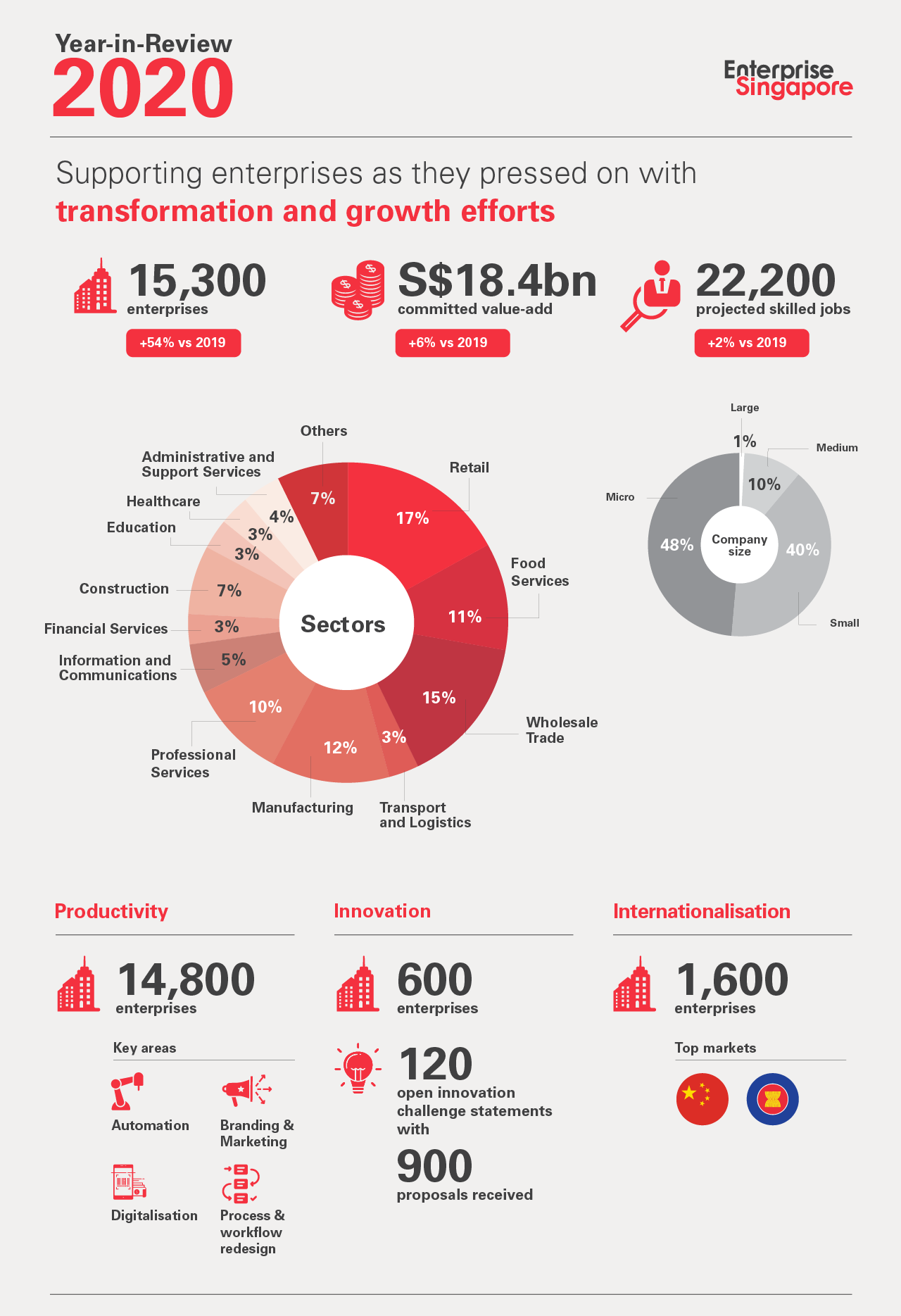
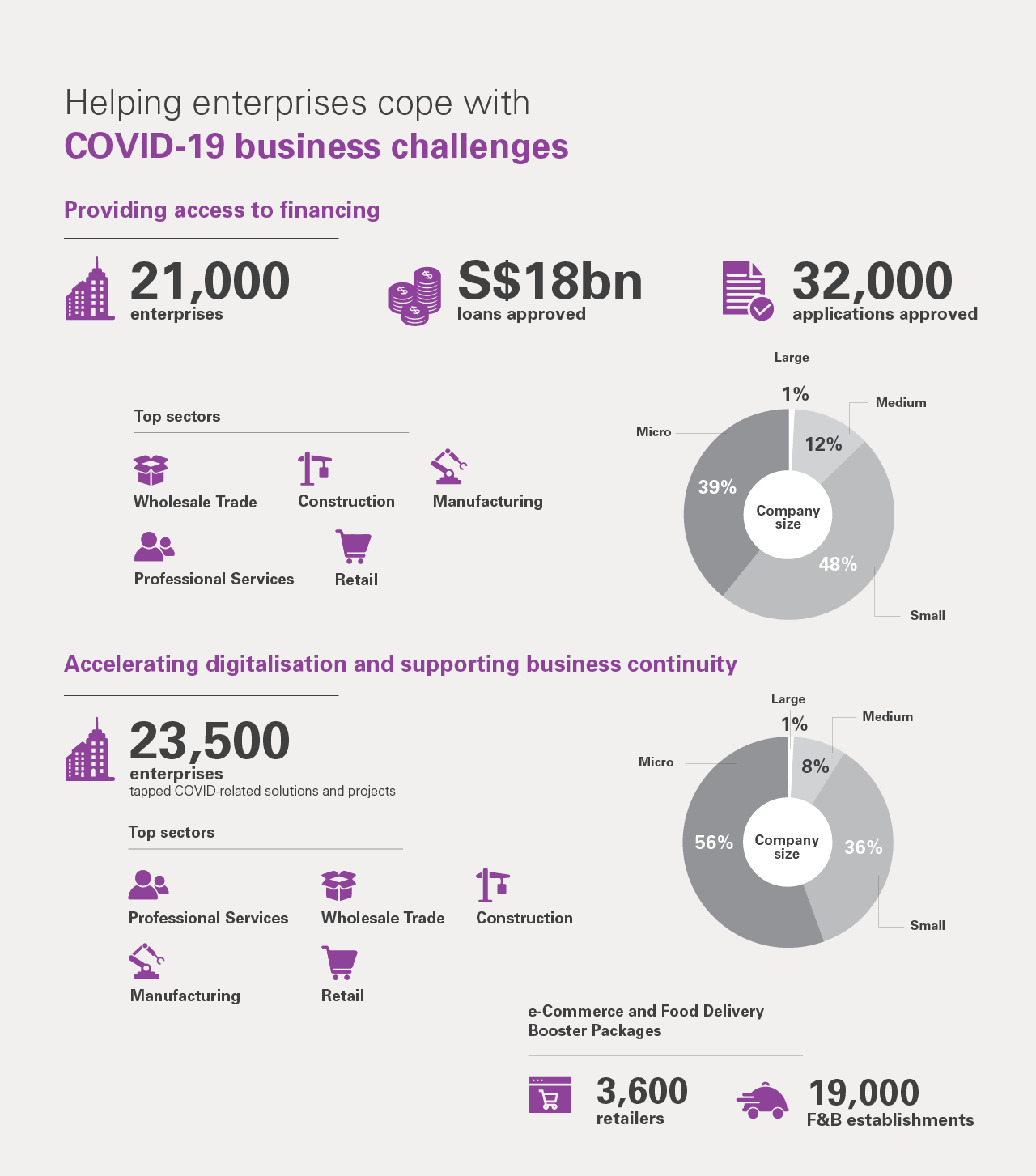
Helping enterprises cope with COVID-19 business challenges
At the onset of the pandemic, our priority was to help businesses manage their cashflows and mitigate operational challenges brought about by COVID-19. We facilitated their adoption of digital solutions so they could continue their operations and adapt to remote working. We also supported enterprises to ensure business continuity and the safe reopening of our economic activities.
-
Provided greater access to financing
- Launched the Temporary Bridging Loan Programme and enhanced the Enterprise Financing Scheme - SME Working Capital, with the government sharing 90% of the risk on such loans
- Assisted 21,000 enterprises with 32,000 loans amounting to $18 billion
- 87% of recipients were micro and small enterprises, largely from the wholesale trade, construction, professional services, retail and food services sectors
-
Accelerated digitalisation and supported business continuity
- Under the Productivity Solutions Grant, we offered more COVID-related digital tools and solutions to support remote working, e-commerce and more
- PSG support level was increased from 70% to up to 80% to lower the cost of digitalisation
- Over 23,500 enterprises tapped these solutions to digitalise their operations and achieve business continuity during this period
- 3,600 retailers and 19,000 F&B establishments tapped our e-Commerce and food delivery booster packages to onboard e-commerce and food delivery platforms and sell online
-
Undertook other COVID-19 support efforts
- Stepped up the ESG Enterprise Infoline call centre and handled over 200,000 COVID-related calls and email enquiries in 2020
- Assisted other ministries and agencies to secure essential supplies and increase stockpiles
- Worked with enterprises to make sure that essential services continued to run during the Circuit Breaker period, and provided support on manpower redeployment efforts and green lane travel arrangements
- Developed and implemented Safe Management Measures for malls, retailers, F&B outlets and supermarkets. More than 750 ESG Safe Distancing Ambassadors deployed in 100 malls across Singapore to ensure compliance with Safe Management Measures
Supporting enterprises as they press on with their transformation and growth efforts
Despite the impact of COVID-19, many enterprises continued with their upgrading, transformation, innovation and internationalisation efforts in 2020. To support these forward-looking businesses, we raised the support level of the Enterprise Development Grant from 70% to up to 90%, and pressed on with our efforts to help these enterprises upgrade and transform.
-
Productivity and upgrading
- 14,800 enterprises embarked on productivity improvements and capability upgrading projects in 2020, a 78% increase over 2019
- Many projects involved automation, process and workflow redesign and digitalisation, improving branding and marketing – aligned with transformation strategies articulated in our various Industry Transformation Maps (ITMs)
- Transformation efforts among enterprises were accelerated during the Circuit Breaker period
Super Union
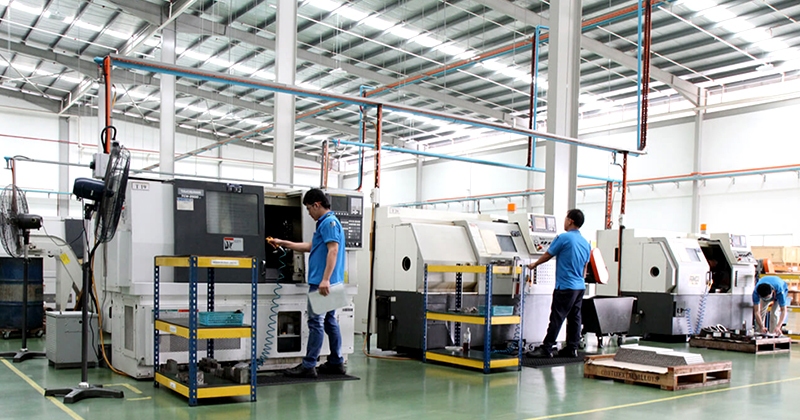
Super Union, a precision engineering company, implemented an end-to-end automation system in 2020 that helps to achieve 100% unmanned production for one of their production lines. This has reduced their production cycle time by 40% and increased their daily output by 80%.
-
Innovation
- 600 enterprises undertook innovation projects to develop new products and solutions to tap opportunities created during COVID-19
- Together with our partners, we launched new platforms to spur innovation. We launched over 120 challenge statements and received over 900 proposals, which shows strong interest from SMEs and startups
- We also launched the 2nd EUREKA GlobalStars-Singapore co-innovation call, which received 84 joint applications between Singapore startups and startups from 14 countries – the largest received by EUREKA GlobalStars ever
Prospace

Using grant support from its win at the 2018 Singtel-Aztech Open Innovation Challenge, tech and Internet of Things (IoT) startup Prospace went on to develop the ThermalSense platform – a solution that tracks and provides comprehensive workspace utilisation data via body temperature detection. This new platform e -
Internationalisation
- We assisted 1,600 enterprises on internationalisation projects in 2020, which as expected, was 38% lower than in 2019
- China and Southeast Asia remained top markets of interest
- Yet despite travel restrictions, Singapore enterprises leveraged digital platforms to establish and maintain market presence quickly. These include virtual trade fairs, online networking events, virtual B2B matching and e-commerce channels
Mighty Jaxx
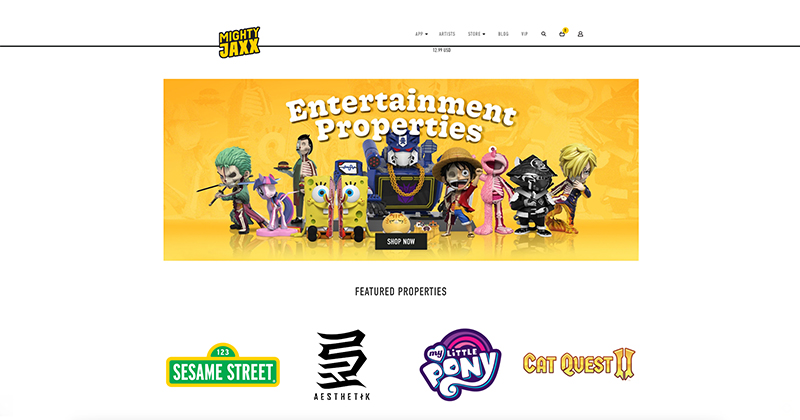
When physical trade fairs such as the Thailand Comic Con were postponed, Mighty Jaxx – a studio which designs art collectibles – launched a virtual experience store to engage their customers and showcase their toy collections instead.
-
Growing local champions
- 42 enterprises from our Scale-up programme in 2019 continued their development and transformation journey through 2020, with Scale-up SG partners McKinsey and PWC
- In addition, we saw our third cohort of seven enterprises in agritech, healthcare, urban solutions and supply chain begin the Scale-up SG programme with Ernst & Young
- Together with our local universities, we launched the Enterprise Leadership for Transformation programme to develop leaders in aspiring enterprises in the early stage of transformation. 60 business leaders from 38 enterprises are on the inaugural run of the ELT programme
-
Industry-level efforts
At the wider industry level, we continued to work with key multipliers and industry partners on rolling out industry-specific and cross-industry projects.
The 11 SME Centres, run by the Trade Associations & Chambers (TACs), assisted 32,000 enterprises through business advisory services and capability development efforts.
The TACs implemented new initiatives to assist enterprises:
- GlobalConnect@SBF was launched to provide dedicated market access support for all enterprises, including non-SBF members. SBF set up a team of experienced market advisors who can provide targeted advisory for first-timers who are looking to internationalise, as well as those who wish to enter new markets. About 4,500 enterprises have been assisted under this initiative.
- Online Singapore Pavilion at ITAP led by Singapore Manufacturing Federation to help businesses connect to local and regional manufacturers. The Pavilion featured over 20 enterprises and their latest technology and solutions, such as robotics and IoT through an online platform.
- The Singapore School & Private Hire Bus Owners’ Association piloted a cloud-based integrated smart fleet management system to help bus companies automate their job scheduling and route planning process, and support digital payments.
- Five trade associations in the beauty services industry came together to form the Beauty Services Alliance. We worked closely with the alliance and the industry to develop, disseminate and implement Safe Management Measures specific to the beauty services sector. The alliance also developed a competency framework to upskill their workers, provide better career progression pathways for them, and increase job positions for locals by 30% in five years’ time.
-
Strengthening startups and innovation ecosystem
We continued to support startup formation and strengthen the startup and innovation ecosystem in 2020, in line with our strategy to grow Singapore into a global-Asia node for technology, innovation and enterprise.
- 2,100 startups benefitted from the mentorship, incubation and collaboration opportunities, as well as funding, through our Startup SG programmes and partners
- 500 aspiring Singapore entrepreneurs applied for our Startup SG Founder programme, which was enhanced with a new venture building component to groom more venture builders and seed more startups
- We expanded the Global Innovation Alliance network to Manila and Shenzhen to help startups connect with and access those markets. Our GIA network now covers 15 cities in 11 countries
Augmentus
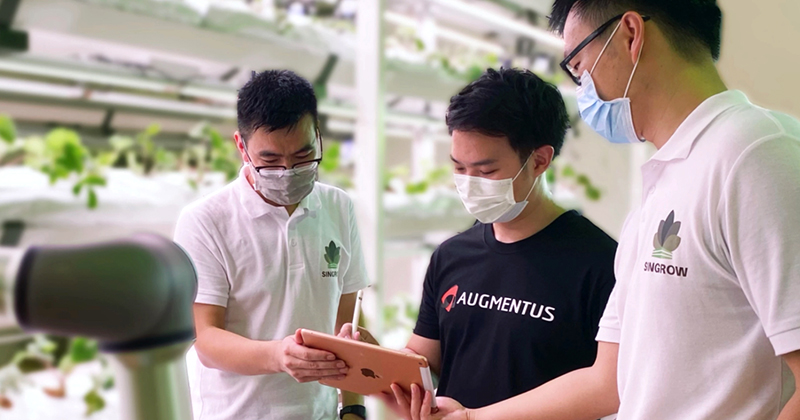
Augmentus, a simplified robotics startup that was supported through the Startup SG Founder programme, was recently crowned a winner at the Singapore Digital Techblazer Awards. Their solution enables users to draw on an iPad the paths they want an industrial robot to take, shortening a weeks-long coding and design process to a matter of minutes.
SFF x SWITCH
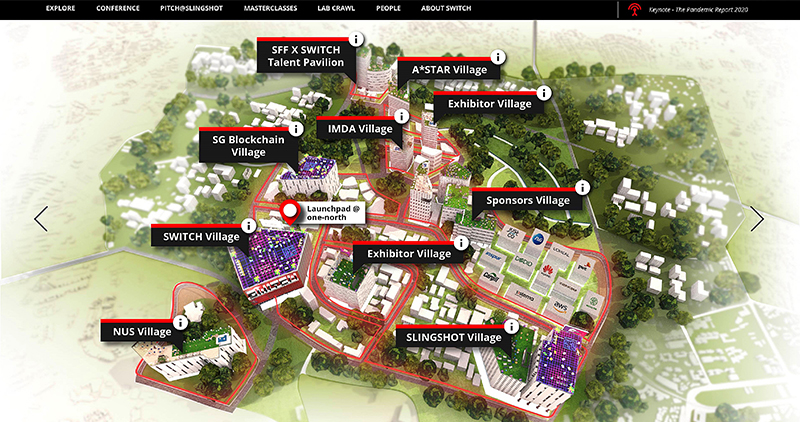
Despite COVID-19, international platforms such as SFF x SWITCH and SLINGSHOT, which bring the startup community together, carried on in new and innovative ways. In 2020, SFF x SWITCH took on a hybrid format featuring a 24-hour online platform and saw participants from 160 countries. Our marquee startup competition SLINGSHOT also went fully online, attracting more than 7,500 applications from over 150 countries.
Our strategy for 2021
We start 2021 with signs of a gradual recovery. However, we are not out of the woods yet. COVID-related disruptions can flare up in Singapore or overseas, at short notice and with unpredictable impact.
In the midst of current volatilities, enterprises will need to be highly agile to pivot as the situation affords. They will need to pick out pockets of growth whenever and wherever they find them, and compete on superior value proposition based on innovation and strong brand attributes.
As we continue to walk on this uncertain but exciting journey together with our Singapore enterprises, here is our approach in supporting them to seize opportunities, build new possibilities and transit into the next phase of transformation and growth:
-
Capturing demand markets through innovation and internationalisationBuild new capabilities to support internationalisation
- Businesses should leverage the hybrid approach to build on virtual trade fairs and platforms, to raise brand awareness, and to solicit new contacts
- There needs to be a more immersive and interactive experience, so they can better leverage these digital platforms and our in-market partners to broaden the reach to overseas customers
- Strong digital marketing capabilities will be an asset to enterprises in this new world. We support the Caroubiz Booster Package, which allows merchants to use the in-platform marketing tools to drive traffic to their business, and also embarked on a live-streaming project to build Singapore companies’ digital marketing capabilities in China
Harness innovation to meet new needs- Enterprises must compete beyond pricing by developing new business models and intellectual property, or innovative products and solutions
- Open innovation will still play a critical role – the key is to help companies and startups find the right platform to test their solutions so that they can build a track record, and eventually generate new revenues
- This year, we are working on a healthy pipeline of open innovation calls, including the third editions of the Sustainability Open Innovation Challenge, and Trade and Connectivity Challenge
-
Seizing opportunities in new growth sectors and marketsDemand in emerging growth areas
- Through the use of Industry 4.0 technologies such as robotics, Industrial IoT and additive manufacturing, we can grow our manufacturing sector further as Singapore works to become a global business, innovation and talent hub for advanced manufacturing
- These technologies can be applied and adapted to other growth sectors such as agritech, biotech, sustainability and urban mobility
- COVID-19 also accelerated the acceptance of blended learning and tech-enabled healthcare delivery, bringing new opportunities in services such as edtech and digital healthcare
New and exciting opportunities in China and Southeast Asia- China will double down on efforts to build a strong domestic consumer market, strengthen its innovation ecosystem and develop mega regions such as the Guangdong-Hong Kong-Macao Greater Bay Area (GBA) and Yangtze River Delta (YRD) region
- Companies can tap the depth of the capital markets and robust technology ecosystem in the region and explore more collaboration
- Strong digitalisation push and rising internet usage in Southeast Asia markets bring untapped opportunities, particularly in technology-related sectors
-
Leverage sustainability as a competitive advantage
- It is important for businesses to integrate sustainability as part of their strategy. This can be a long-term capability they can leverage to access new market opportunities
- A recent report by Bain showed that the green economy could potentially generate US$1 trillion in annual economic opportunities across Southeast Asia by 2030
- In line with the Singapore Green Plan 2030, we will support enterprises in their journey to develop the required capabilities that can help them capture such opportunities
-
Strategic collaboration with partners
Last year, our network of partners stepped up tremendously to help our companies cope with the impact of COVID-19. We will continue the close working relationship with these partners as we help enterprises get back on their growth path and seize new opportunities.
- Banks and financial institutions provided the much-needed lifeblood of financing to keep businesses afloat amid a sharp drop in demand
- Telcos, banks, e-commerce platform and e-payment players provided strong support for enterprises in their digitalisation efforts
- SME Centres had their business advisors intensify outreach and engagement efforts
- TACs rallied the business community to help fellow members and press on with industry transformation. For example, the Singapore Business Federation, Singapore Contractors Association Ltd, Singapore Furniture Industries Council and SGTech worked with us through the SG Together Enhancing Enterprise Resilience (STEER) programme. STEER supports funds set up by TACs to help businesses tide over the challenges arising from COVID-19, and to push on with transformation efforts
- Leading local corporates and MNCs have the right expertise and platforms. We aim to deepen collaboration with these partners so that we can scale up the resources and networks available to help our enterprises grow



